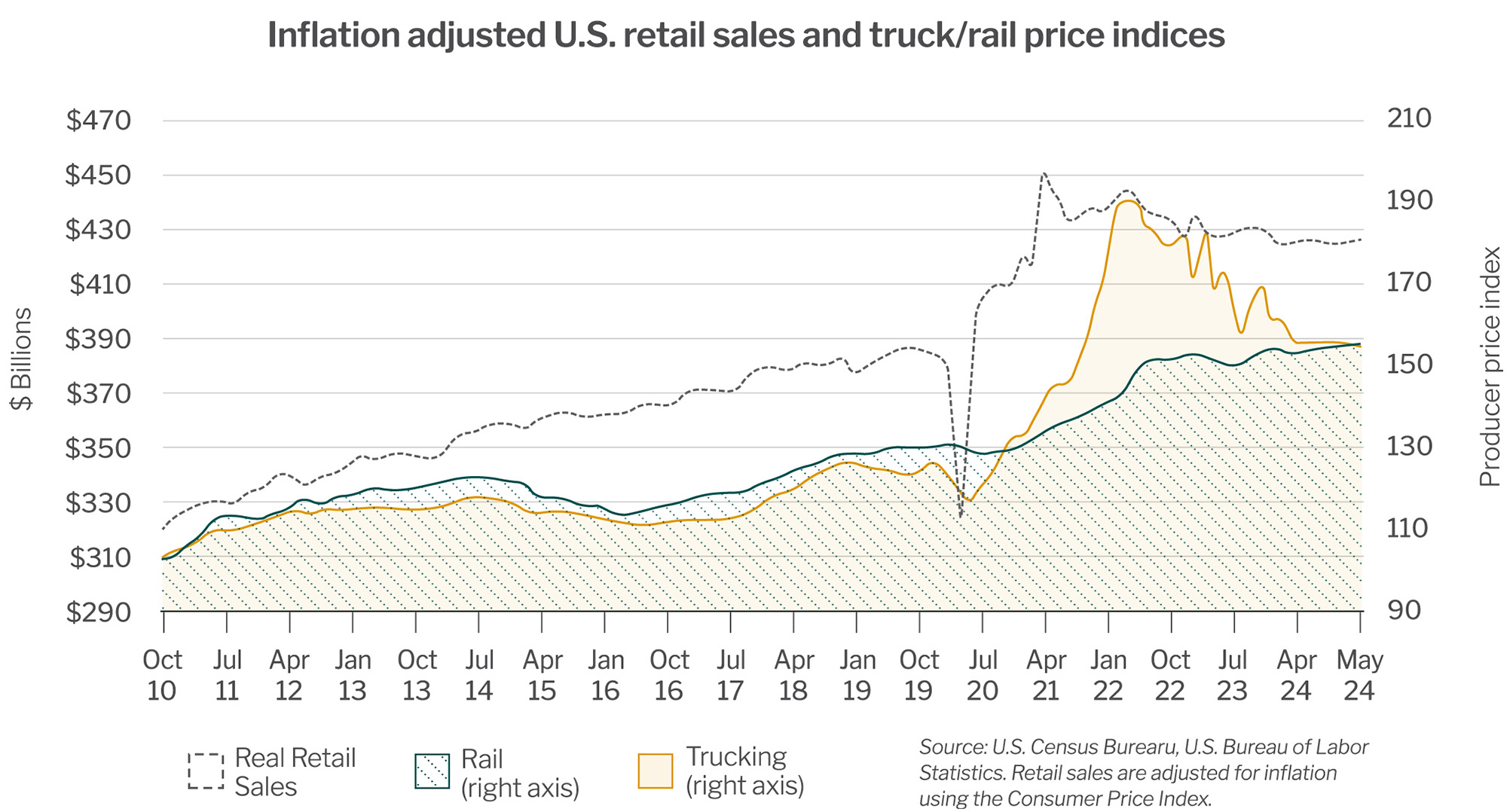The impact of economic growth on crop inputs
Economic activity directly impacts agriculture input prices, particularly for gas, diesel, fertilizers and transportation. Economists predict a weaker economy in the coming year, which could impact living standards and consumer spending, but might also ease cost pressures for agriculture producers.
Consumer spending is the largest driver of the U.S. economy, making up about 70% of the Gross Domestic Product (GDP). In this context, a ‘strong’ economy suggests consumers are buying high levels of goods and services, which increases demand for:
- Gasoline, as consumers drive to/from work, retail stores and vacation spots.
- Diesel, as trucks and shipping vessels transport goods across the supply chain.
- Natural gas (the primary input for nitrogen fertilizers), as industrial facilities produce the goods demanded by consumers.
- Trucks, rail cars and shipping vessels, as raw, intermediate and final products move down the supply chain.
Many economists use U.S. retail sales as a barometer for economic activity and the chart below shows how this variable correlates with trucking and rail prices. After spiking in 2021, trucking costs followed retail sales down while rail cost growth declined significantly.

Changes in transportation costs are often, though not always, preceded by changes in consumer spending.
Return to Stories home page.